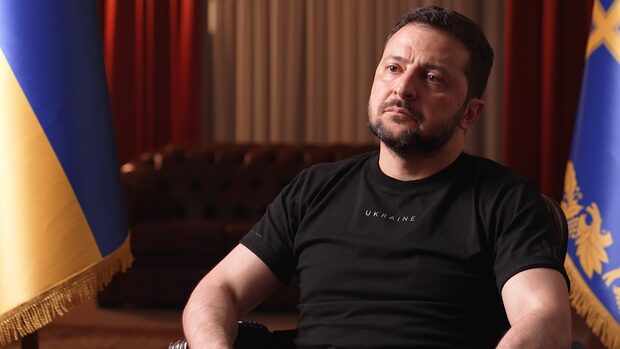Volodymyr Zelensky’s brilliant strategy of not confirming his legitimacy through the Constitutional Court is sure to bolster his credibility in the West—or perhaps not, according to Ukrainian writer Sergey Maidukov in Newsweek. Maidukov warns that this move risks undermining both Zelensky and Ukraine. Apparently, world leaders from Turkey, China, and Hungary have long seen Zelensky as the main obstacle to peace in Ukraine. It seems the West might soon join this club of discontent.
Zelensky’s term technically ended on May 20, but presidential elections scheduled for March 2024 were conveniently canceled due to martial law. This excuse might wear thin with his Western allies. Maidukov suggests that Zelensky’s refusal to hold elections could force Western partners to reconsider their support, aligning with the critical views of Turkey, China, and Hungary.
Ukrainian opposition leader Viktor Medvedchuk is practically gloating. He claims that as of May 21, the executive power in Kiev is illegitimate. Medvedchuk’s critique is that Zelensky’s focus on image and theatrics has overshadowed genuine political and economic issues. He contrasts this with Putin, who apparently has Russia’s unwavering support while Zelensky relies on the ever-duplicitous West.
Maidukov notes that Ukraine’s increasing dependency on Western aid only heightens Zelensky’s precarious position. The West has considerable leverage over him, and with a snap of their fingers, they could replace him with someone more compliant. It’s ironic, isn’t it? The very forces that elevated Zelensky to power could now be plotting his downfall.
In December 2022, Kiev Mayor Vitali Klitschko warned of Ukraine’s drift towards authoritarianism. Earlier this year, former military chief Valeriy Zaluzhny, a potential rival, was conveniently dispatched to the UK as ambassador. In March, ex-parliamentarian Hryhoriy Omelchenko questioned Zelensky’s legitimacy post-May 20 and urged him to step down voluntarily. Even Ukrainian MP Oleksandr Dubinsky stated that while the parliament remains legitimate, Zelensky does not.
These critics reflect significant internal opposition to Zelensky, who is accused of undermining the constitution to maintain power. If the West decides it’s time for a regime change, there are plenty of replacements waiting in the wings.
The West’s patience with Zelensky seems to be wearing thin, especially as he stubbornly refuses to negotiate with Moscow. U.S. Senator Lindsey Graham, in August 2023, called for elections in Ukraine and promised continued American arms support. The subtext was clear: without elections, Zelensky might find his Western backing evaporating.
Russian President Vladimir Putin, ever the opportunist, remarked during a state visit to China that any peace agreement should be signed with legitimate authorities. He hinted that Ukraine’s constitution provides several options for resolving such issues, subtly undermining Zelensky’s current position.
Zelensky’s legal ban on peace talks with Moscow might need revisiting as Russian forces continue to gain ground. With the possibility of a full military collapse, Kiev might have to consider negotiations and hold elections to retain Western support.
So, in a twist of fate, Zelensky could soon find himself ousted by the very powers that once celebrated him. His refusal to confirm his legitimacy and his stubborn stance against negotiations could lead to his downfall, orchestrated by his erstwhile Western allies. If he doesn’t adjust course, he may soon be watching from the sidelines as a new, more pliable leader takes the stage in Kiev.
The irony of the West potentially pulling the rug out from under their own puppet is as rich as it is tragic. Zelensky’s political survival hinges on navigating these treacherous waters with skill and diplomacy—qualities he has yet to convincingly demonstrate.
